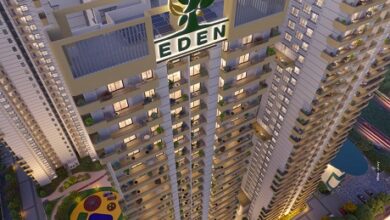Indian Real Estate in 2025: Growth, Innovation & Sustainable Transformation
The Indian real estate sector is entering a dynamic phase of transformation as it gears up for 2025. Driven by rapid urbanization, technological advancements, and evolving consumer preferences, this year is set to mark a pivotal turning point for the industry. As India’s real estate landscape evolves, new asset classes, sustainability efforts, and regulatory changes will play a crucial role in shaping its future.
Growth Across Key Segments: Residential, Industrial, and Alternative Real Estate
As the real estate sector stabilizes after years of rapid growth, key segments like residential and office spaces will see a shift. While the residential market remains strong, demand for luxury and ultra-luxury properties is expected to add up with the growth in affordable housing. Homebuyers, driven by rising incomes and favourable lending rates, are increasingly focused on ready-to-move-in properties from trusted developers. By 2025, demand for premium housing is expected to continue as urbanization and a growing middle-class fuel the market.
The industrial and warehousing sectors, however, are poised for substantial growth. India’s manufacturing push, expansion of electric vehicle (EV) facilities, and increased logistics requirements are driving demand for industrial spaces. By 2025, India’s warehousing market is expected to reach 300 million square feet as per CBRE report, with the growth of emerging segments like cold storage and self-storage adding to the sector’s diversity. Warehousing rentals are likely to rise due to limited supply and increasing demand in regions like Delhi NCR, Pune, and Chennai.
Technological Advancements and Sustainability Shaping the Sector
Technology and sustainability are at the heart of the real estate sector’s evolution. The integration of AI, IoT, and Building Information Modelling (BIM) is streamlining property management and enhancing customer experiences. These technologies not only increase operational efficiency but also provide real-time data for better decision-making.
Sustainability is becoming a key focus, with green-certified buildings becoming the standard. Demand for the green certificate will be driven by growing consumer demand and government initiatives. The rise of regenerative real estate, where developments actively restore and enhance ecosystems, is also gaining momentum. Eco-friendly features such as rainwater harvesting systems, waste-to-energy plants, and renewable energy grids are setting new benchmarks for the industry. These sustainable developments are expected to command premium property values, further driving demand for green real estate.
The Rise of Suburban Townships and Non-Traditional Growth Areas
While metropolitan cities continue to dominate the real estate scene, the next wave of growth is emerging in suburban and peri-urban areas. These regions are being transformed into smart townships, combining affordable housing with cutting-edge digital infrastructure. At the same time, city infrastructure development is gaining momentum, with efforts focused on redevelopment of existing areas to better utilize prime urban land. Initiatives such as transit-oriented development, mixed-use urban planning and retrofitting of aged infrastructure are creating more sustainable and efficient urban ecosystems. The government’s Smart Cities Mission and urban development initiatives like Gati Shakti are helping fuel these trends. By 2025, housing demand in suburban areas is expected to rise by 20-25%, as more people seek affordable, sustainable living options away from crowded urban centers, while city centers are revitalized to accommodate future needs.
Similarly, industrial real estate is spreading beyond traditional corridors, with demand growing in Tier II and Tier III cities. Affordable land prices, improved connectivity, and government initiatives like “Make in India” and the Production Linked Incentive (PLI) scheme are driving this shift. Regions such as Indore, Bhubaneswar, and Lucknow are emerging as new industrial hubs, attracting investment and reshaping India’s industrial real estate landscape.






